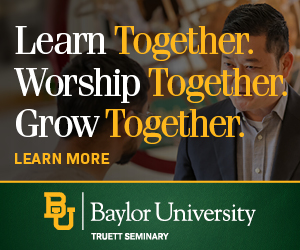I had my first encounter with superhero movies when Superman, with Christopher Reeves, hit the theaters in 1978. As a 9-year-old, I was spellbound. In 1980, its sequel came out and added the first villains with superpowers to the equation. At one point (spoiler alert), those villains were able to capture the White House. They demanded the leader of the United States come bow before them. When a person did, the villains demanded the real president come forward. Their rationale was that no man who led so many could bow so easily.
Although it was more than 40 years ago, that moment has stuck with me. I had never really considered what the actual qualities of a leader were. My eyes were opened to the fact not everyone could be a leader.
In my more than 30 years of ministry experience, I have encountered many different types of leaders. Some possessed the appropriate skill set, and others did not. What I have discovered is the primary skill necessary for a godly leader is meaningful submission to God, which manifested itself in servanthood to God’s people and truth.
In today’s passage, Jeremiah is dealing with the issue of leadership—in particular, leadership of Judah’s prophets and king, in contrast to the God’s leadership. His overall point is the damage created by leaders who do not submit to God is lasting and significant. As we consider our own role in leading, teaching, learning and following, Jeremiah’s words are important for plotting a course that aligns with God’s plan and purpose for our life.
New Shepherds (Jeremiah 23:1-4)
The use of the term shepherds in the first few verses of Jeremiah 23 is meant to refer to Judah’s overall leadership. The term even can be used as a synonym for nobility in Scripture. This probably comes from the reality that shepherds in the ancient Near East did not drive their sheep to their next locations as is often done in the west, but instead would lead them. The imagery would have indelibly locked into a culture that was initially semi-nomadic and continued to be surrounded by shepherds in day-to-day life.
God alludes to himself as a shepherd in the passage by talking about gathering his people together from all lands. Shepherds typically gathered their sheep together for the purposes of shearing, protection and rest. Such images would be important reference points for Israel in the years following the exile as they searched for restoration and renewal.
He concludes with a preparatory statement about the next section by introducing the idea of new shepherds who will lead differently. Instead of the death and destruction brought by the present shepherds, these new shepherds would lead Israel back to its original purpose of following God’s command to be fruitful and multiply. Life would replace death. Order would replace chaos. Victory would replace loss.
What other images of shepherds fit into God’s expectations for those who would lead his people? How can leaders and members of the flock work together to ensure God’s standards are followed? Are there any modern jobs or roles you could think of that a writer would use today to portray God’s leadership and the leadership of those he calls to serve?
Righteous Branch (Jeremiah 23:5-8)
The promise of a new leader expressed in verse 5 introduces a common image of the new shoot or possibly scion who would lead Israel in the future. In Jeremiah’s setting, there was a great rift in Judah over those loyal to the exile Jehoiachin and those who followed the appointed Zedekiah as king. Jeremiah’s use of righteous here probably has more the connotation of true, rather than morally upright— though both ideas would likely be involved.
Sign up for our weekly edition and get all our headlines in your inbox on Thursdays
Like a bush that has been cut back to its roots and has new healthier growth come from it, Israel’s future leader would be connected to the Davidic foundations, but also would represent something new. He contrasts this future king with the present Zedekiah by playing off the meaning of his name. Zedekiah means Yahweh is my righteousness. The new king would be named Yahweh is our righteousness, but the righteousness here is very much in the sense of justice. Therefore, it would be appropriate to render the name Yahweh is our justice.
The exodus was the central saving act of Israel’s history. It defined the identity of the people and their standing before God. Jeremiah is suggesting the change to come in Israel’s future will be so significant it will supplant the exodus in its importance for the people. The faithful remnant who held to God’s truth would find justification and transformation on a scale of epic proportions.
How can new leadership breathe new life into a broken situation? In what ways might we be able to pursue new leadership without necessarily replacing a person in a leadership position? What role did the people play in Judah’s failed leadership? How do all these matters speak to our various roles and responsibilities today?
Impending Disaster (Jeremiah 23:9-12)
Verse 9 contains a phrase that easily could be misconstrued, because it means something different in our context than in the biblical one. When Jeremiah talks about his heart being broken, it is important to remember the heart in Scripture is not the seat of emotion, but a reference to the mind. The concept is not one of being hurt or saddened, but disturbed and overwhelmed.
The sin of Judah was pervasive, and subsequently the judgment would also be thorough. Both concepts are troubling to Jeremiah. The people he loves are so sinful it is beyond comprehension. The wrath they will experience is so devastating, he trembles at the high cost they would pay. To the believer preaching to a lost world, both truths should ring true in our mind. The sin we address is often unimaginable, but the price to be paid by those who are trapped in it should bring us no joy. After all, true leaders first and foremost loves the sheep they have been called to lead.
How do we find a balance between sensitivity to the presence of sin and loving the people that are carrying out those actions?
Timothy Pierce, Ph.D., is associate professor of Christian Studies at East Texas Baptist University.















We seek to connect God’s story and God’s people around the world. To learn more about God’s story, click here.
Send comments and feedback to Eric Black, our editor. For comments to be published, please specify “letter to the editor.” Maximum length for publication is 300 words.